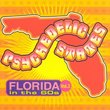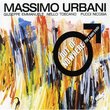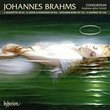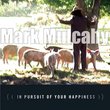| All Artists: Various Title: A Gift to be Simple Members Wishing: 1 Total Copies: 0 Label: The Gift of Music Release Date: 3/5/2004 Genres: Special Interest, Classical Styles: Opera & Classical Vocal, Ballets & Dances, Ballets, Historical Periods, Modern, 20th, & 21st Century, Symphonies Number of Discs: 1 SwapaCD Credits: 1 UPC: 658592113624 |
Search - Various :: A Gift to be Simple
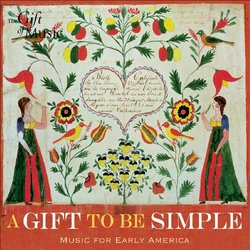 | Various A Gift to be Simple Genres: Special Interest, Classical
A Gift To Be Simple - Music for Early America The pioneering spirit of the first explorers of the United States of America, in a program which combines their own music from the earliest times with superb evocations of thei... more » |
Larger Image |
CD Details
Synopsis
Product Description
A Gift To Be Simple - Music for Early America The pioneering spirit of the first explorers of the United States of America, in a program which combines their own music from the earliest times with superb evocations of their lives, times and tunes from famous American composers of the twentieth century - Ainsworth Psalms, the Bay Psalter, Moravian musicians, Ives, Copland, Coolidge and more. The music of early America is fascinating. At first, much of it was imported from Europe, but the story of American music is, like the story of the American nation, one of discovering a new way, a self-reliant way of doing things. The pilgrims arriving in Plymouth, Massachusetts in 1620 sang religious songs from a psalm book which had been published in Amsterdam by an Englishman, Henry Ainsworth in 1612. Ainsworth's book (tracks 2-17 and others) was very useful; much more so, in fact, than previous, similar publications. The book was pocket-sized, and thus perfect for transport from one side of the ocean to the other, and it included the psalm tunes along with the words. So Ainsworth's Psalms may well have been the first European music to be sung in the New World. Soon, though, as American society grew, the founding fathers of the American communities began to long for their own psalter. The tunes in Ainsworth's book were actually rather hard to sing, and while the earliest pilgrims must have been pretty accomplished musicians, later generations were not always so musically sure of themselves. In addition, some of the translations of the biblical psalm texts were found wanting in a society which aimed to follow God's word to the letter. The need for a new psalter was addressed in 1640 when the Bay Psalter (tracks 19-23) was published in Cambridge, Massachusetts. This was the first full-length book to be printed in the colonies, and it remained popular for at least one hundred years. Psalm singing became a Christian duty in church, and it was often performed by a lead singer who would intone a line or phrase which the congregation would repeat back. Errors would inevitably creep in over the years and there was much debate about the value of such a practice. Singing schools arose which taught the rudiments of music so that congregational singers could learn to read a musical score, and thus sing more accurately. The success of these singing schools eventually led to a need for more music (and more sophisticated music at that) than a simple psalter could provide. This was an opportunity for entrepreneurial American composers to make their own mark on the American musical scene, and several volumes of music appeared in the eighteenth century, including James Lyon's Urania, or A Choice Collection of Psalm-Tunes, Anthems and Hymns. Lyons had been born in New Jersey and was a graduate of the College of New Jersey (Princeton). Urania was published by subscription in Philadelphia in 1762 (tracks 27, 29 & 30), having been created and compiled during 1761. John Antes was born in Pennsylvania and attended a Moravian church in Bethlehem. Antes opened a music shop in Bethlehem in 1762. He is considered to be the first American composer of chamber music, even though none of his music of that type was composed while he was living in the United States. He signed himself Giovanni A-T-S, Dilletante Americano. As a Moravian missionary he travelled widely in Europe and as far as Egypt before settling in England, where he got to know some of the greatest composers of the day including Joseph Haydn. Antes' music owes much to the Classical style which was so popular in Europe in the last few decades of the eighteenth century.
Similar CDs
| Massimo Urbani Out of Nowhere Genre: Jazz Label: Splasch | |

 Track Listings (34) - Disc #1
Track Listings (34) - Disc #1